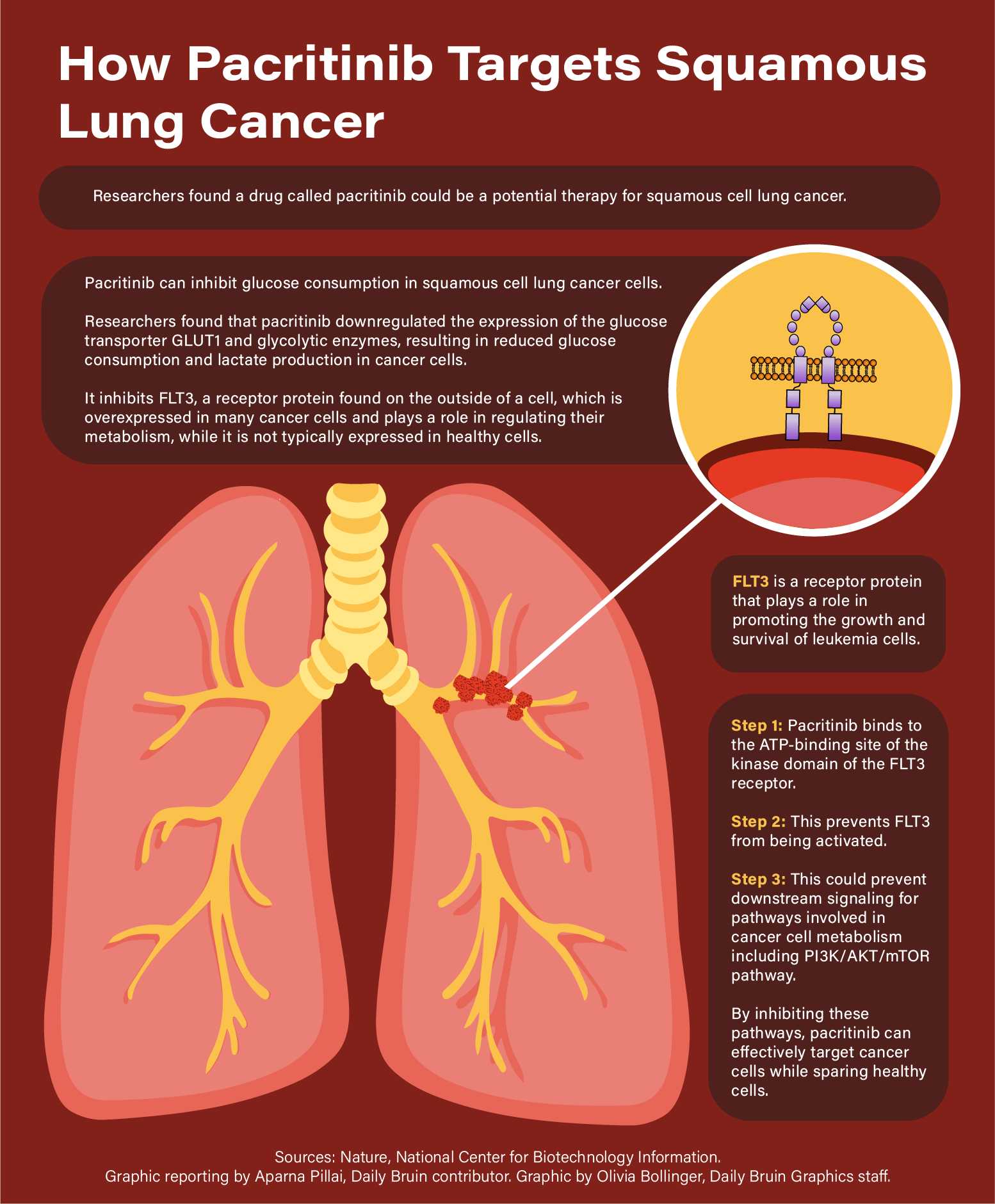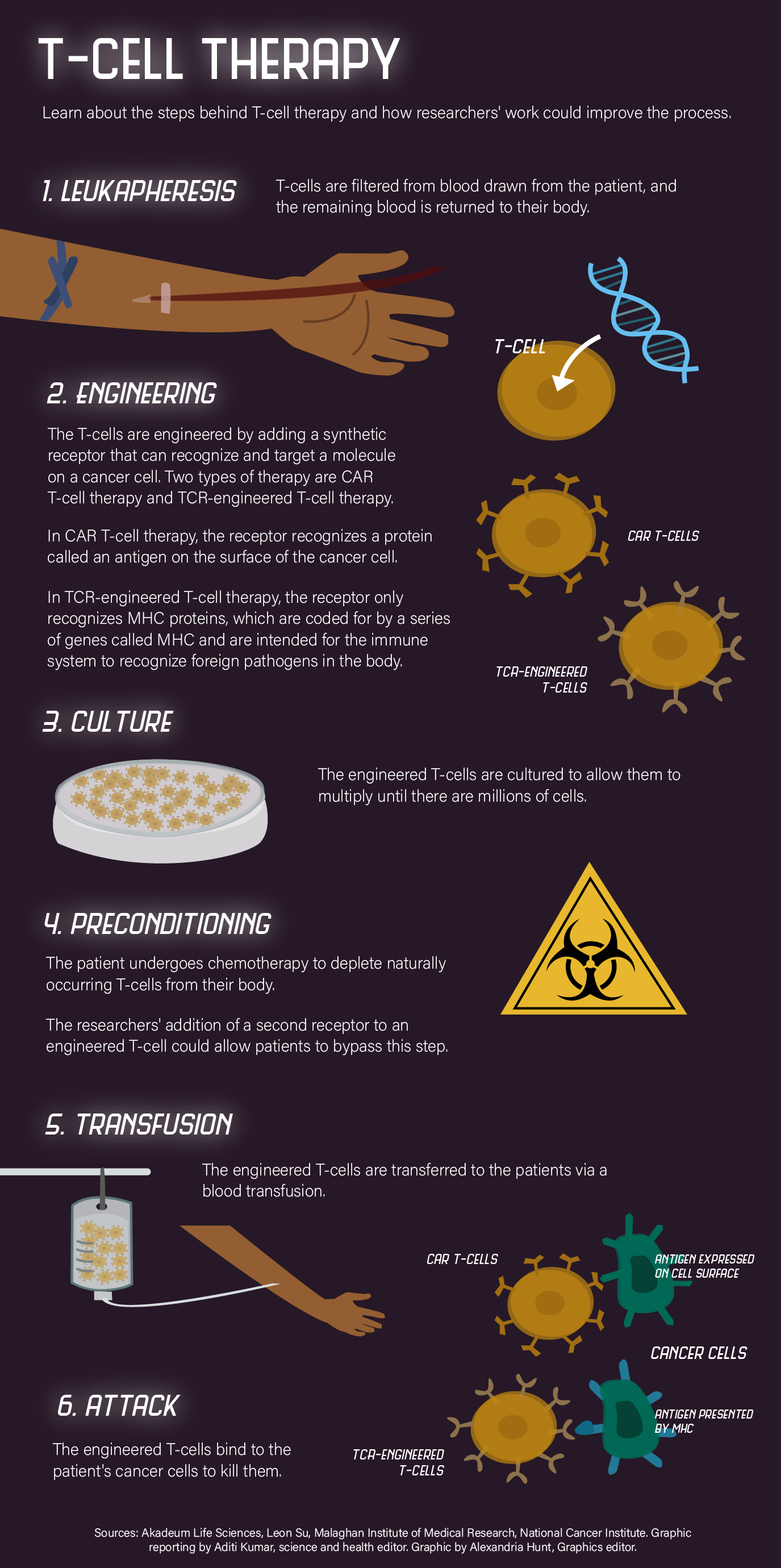UCLA study links fasting to mitochondrial splitting

(Danielle Cho/Daily Bruin)
By Danielle H. Cho
Aug. 23, 2023 5:40 p.m.
UCLA researchers found that fasting increases the splitting of mitochondria, which may have implications for metabolic and aging-related diseases.
In the study published in June, scientists examined the livers of mice that had been starved and identified the activated proteins, said Nuria Martinez-Lopez, the paper’s first author. They found that proteins in the mTORC2 cellular signaling pathway – known to be related to cell growth and metabolism – were activated by fasting, she added.
These proteins increased the splitting of the mitochondria during fasting, which might allow cells to more efficiently burn fatty acids to cope with starvation, said Rajat Singh, the paper’s corresponding author.
Martinez-Lopez, who is also an assistant adjunct professor of medicine, said she and her colleagues wanted to understand how cells adapted to different states of nutrient availability. She added that they observed increased mitochondrial splitting during fasting.
“One of the characteristics of aging is the dysfunction of the mitochondria,” Martinez-Lopez said. “If you understand how the mitochondria divide and fuse, you also understand how to regulate those processes for functional mitochondria, and this is important in aging and in disease.”
Singh, who is also a professor of medicine, said mitochondria continuously go through cycles of joining together and splitting, adding that healthy cycles of mitochondrial fission and fusion are essential for maintaining good health. Malfunctions in these cycles are associated with effects such as neurodegeneration and heart disease, he added.
“These changes in mitochondria dynamics allow the cells to deal with fluctuations in the abundance of nutrients to optimize energy production,” said Pamela Mattar, second author of the paper, in an emailed statement.
The researchers further tested the relationship between this signaling pathway and mitochondrial splitting, according to the paper. They did so by deleting a gene in the mTORC2 pathway and observing how that affected mitochondrial fission in mice that were fasting.
Because the deletion interferes with mitochondrial fission during fasting, this demonstrates that the mTORC2 pathway is important for this process of mitochondrial division, according to the paper. This finding is new because previous experiments using lab-grown cells, rather than live animals, suggested that fasting decreases – rather than increases – mitochondrial fission, Martinez-Lopez said.
She added that this may be because the cells within a living animal may interact and affect each other in a way that would not occur in lab-grown cells.
The researchers also examined how proteins work to bring about this mitochondrial fission. In the mTORC2 pathway, they found a protein that is directly responsible for the cutting of the mitochondria and one that supplies energy for this action, according to the paper.
Singh said the researchers are not exactly sure what benefits this increased mitochondrial splitting has yet. However, it is known that a less active mTORC2 pathway is linked to a shorter lifespan, Martinez-Lopez said.
These findings in mouse models may also apply to humans and have implications for certain diets. Intermittent fasting in humans may increase mitochondrial dynamics and thus increase lifespan, Singh said, adding this idea still requires more research.
Future research in this avenue may lead to finding drugs that can increase how long people can live, Martinez-Lopez said.
“If we want to find a way to support the activity of mTORC2, then you’re probably going to have lifespan extension through improved mitochondrial respiration,” Singh said. “We need to find novel targets, new drugs, new compounds to stimulate this pathway so that you can further enhance lifespan.”
Going forward, the lab will investigate how activation of the mTORC2 pathway delays diseases and extends lifespan, Mattar said in the emailed statement.
“We could ambition a lower aging-disease burden, a scenario where we all can age healthily to enjoy our life until the last days,” she said in the statement.






